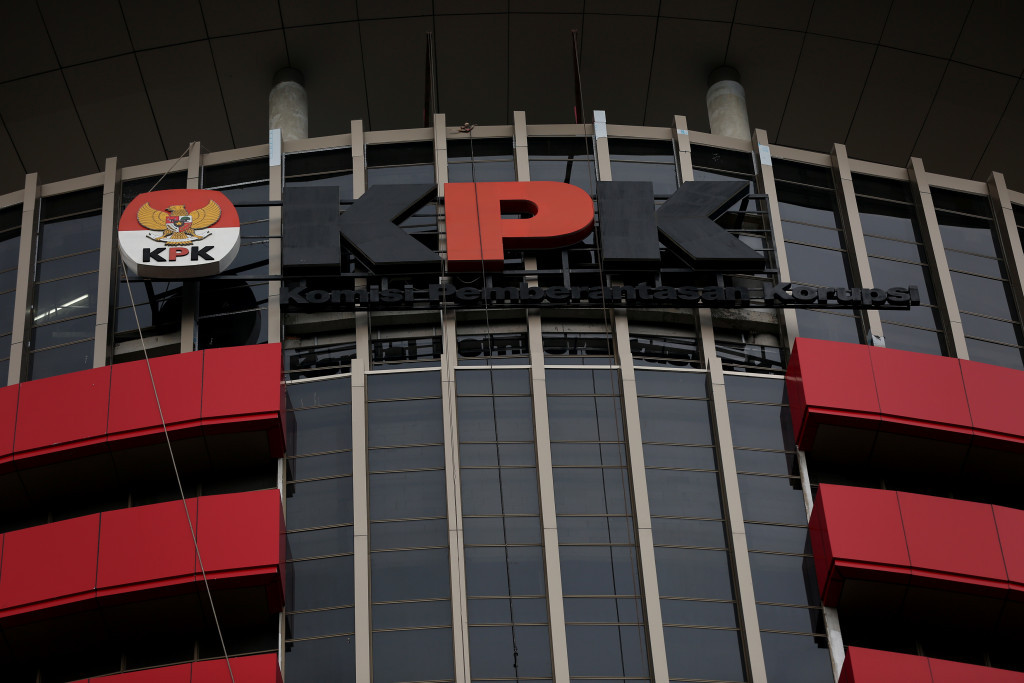Popular Reads
Top Results
Can't find what you're looking for?
View all search resultsPopular Reads
Top Results
Can't find what you're looking for?
View all search resultsKPK shows ‘lack of willingness’ to fight corruption in natural resources sector: Activists
Corruption in the natural resources sector has cost the state an estimated Rp 6.03 trillion.
Change text size
Gift Premium Articles
to Anyone
C
ritics have questioned whether the Corruption Eradication Commission (KPK) will be able to fulfill its promise of addressing corruption in the natural resources sector, which potentially accounts for the largest state losses of any sector in Indonesia.
KPK chairman Firli Bahuri recently told the commission’s newly inaugurated deputy for law enforcement, Karyoto, to crack down on corruption in mining and other natural resources businesses.
Corruption in the natural resources sector has, according to researchers, caused larger state losses than similar illicit practices in other sectors.
Antigraft watchdog Indonesia Corruption Watch (ICW) recorded 37 instances of corruption in the natural resources sector under investigation, accounting for Rp 6.03 trillion (US$403 million) in estimated state losses – four times the estimated losses from corruption in the banking sector.
Four of the cases were related to mining activities, causing an estimated Rp 5.9 trillion in state losses collectively. These were followed by similar illicit practices pertaining to land management with an estimated Rp 111.2 billion in losses from 16 cases.
However, ICW researcher Egi Primayoga said the cases would not be solved anytime soon, blaming “the current KPK leadership’s lack of willingness” to solve them.
Read also: 100 days of blunders: Watchdog slams new KPK chairman's performance
For example, the KPK has yet to complete investigation against Supian Hadi, the regent of East Kotawaringin in Central Kalimantan. The KPK declared the regent a suspect in February of last year for allegedly accepting gratuities between 2010 and 2012 from mining companies in exchange for mining licenses.
The antigraft body estimated that Supian’s actions had caused Rp 5.8 trillion in state losses from environmental damage caused by the mining operation.
“The investigation of the case should have been finished [by now]. However, I’m not sure that new KPK leaders will pay attention to such cases, as these practices often implicate bigwigs,” said Egi.
Syahrul Fitra of Auriga Nusantara echoed Egi, saying the KPK’s pursuit of corruption cases in the natural resources sector had not shown significant results after the new leaders were inaugurated in December of last year.
“Maybe they are working quietly. However, we have not seen significant progress so far. Several old cases have also been left hanging,” Syahrul said.
He added that investigators’ limited knowledge of natural resources management had prevented them from connecting the illicit practices with their possible environmental effects.
Read also: Nur Alam’s graft verdict ‘loss’ for environmental protection
Laode Muhammad Syarif, the executive director of the Partnership for Governance Reform (Kemitraan) and a former KPK deputy chairman, urged law enforcement to use other laws to prosecute graft suspects, such as the Mining Law.
He called on law enforcement officers from other institutions – including the National Police, the Energy and Mineral Resources Ministry and the Environment and Forestry Ministry – to cooperate in the pursuit of graft suspects in the natural resources sector.
“If they are serious about prosecuting, for example, crimes related to mining, it will be very easy because the crimes are happening right in front of our eyes.”
Responding to the criticism, KPK spokesperson Ali Fikri said the antigraft body had been working to curb corruption in the natural resources sector.
However, he acknowledged the issue was not as simple as it may seem, because the root of corrupt practices in the sector was a phenomenon called “state capture” – a systemic political corruption in which private interests influence a state’s decision-making processes to their own advantage.
“We have launched at least 27 cases pertaining to the forestry sector [since our establishment in 2003]. We are also studying to improve governance in the sector,” Ali said.
Editor’s note: The article has been updated to include the KPK’s comment.










